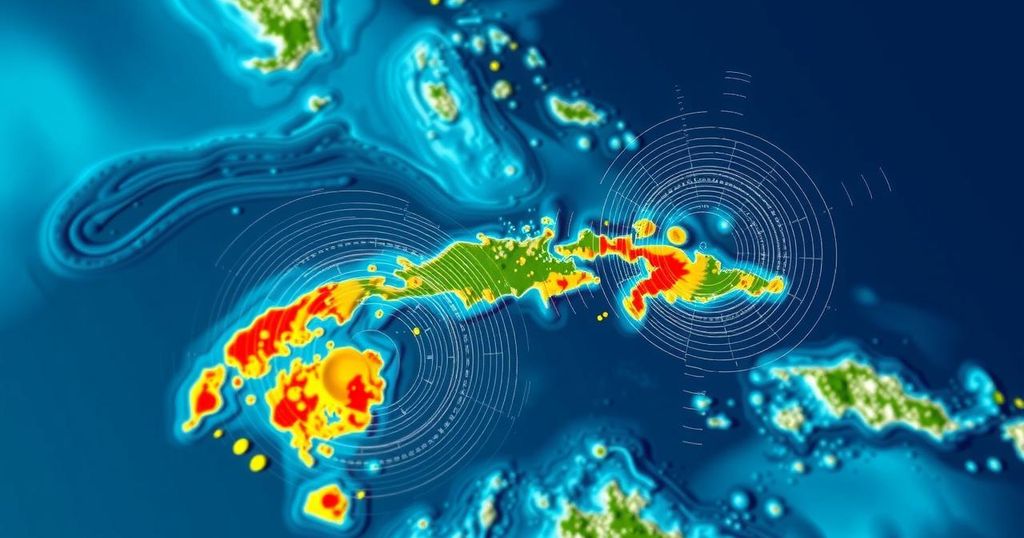Seismic Activity Triggers Panic in Eastern Cuba

On Sunday morning, Santiago de Cuba experienced a major earthquake estimated at 6 on the Richter scale, leading to panic and mass evacuations. Social media played an essential role in communication during the crisis. An aftershock followed shortly after, heightening the fear among residents, although no injuries have been reported. Emergency management is on alert as the community braces for potential further seismic activity.
On Sunday morning, eastern Cuba, particularly Santiago de Cuba, experienced significant seismic activity, eliciting widespread panic among residents. The initial earthquake, reported to have a magnitude of around 6 on the Richter scale by independent journalist Yosmany Mayeta Labrada, prompted thousands to leave their homes and congregate in the streets, fearing potential aftershocks. Shortly after the first tremor, reports confirmed an aftershock, intensifying the anxiety among the populace. Social media became vital for communication, with platforms such as “TV de Cuba” showcasing images of citizens amidst the chaos. According to Aris Arias Batalla of the Red Cross, the earthquake occurred at 10:51 a.m. and was described as “very strong.” Journalist Cuscó Tarradell also reported on the unsettling situation, stating, “A second perceptible earthquake (tremor) in the eastern region of Cuba has sent thousands of people from Santiago into the streets, many crying and moved by the panic that these events generate.” Although there have been no reported injuries, concerns about material damage and the possibility of further seismic disturbances persist as residents remain on high alert.
Earthquakes are a significant concern in Cuba, particularly in the eastern provinces, which lie along the Oriente fault line that is known for its seismic activity. The region has experienced tremors in the past, leading to increased public awareness and preparedness initiatives. Understanding the geological context of Eastern Cuba is essential for comprehending why seismic events cause such alarm. The response from emergency management organizations, including the Red Cross, plays a critical role in ensuring public safety during such events.
The recent earthquake in eastern Cuba has instilled fear and uncertainty among the populace, particularly in Santiago de Cuba, where thousands were forced to evacuate their homes. With the initial tremor causing panic and subsequent aftershocks reported, there is an ongoing concern regarding potential material damage and the necessity for continued vigilance. Authorities are monitoring the situation closely as residents cope with the psychological impact of these seismic events.
Original Source: en.cibercuba.com








